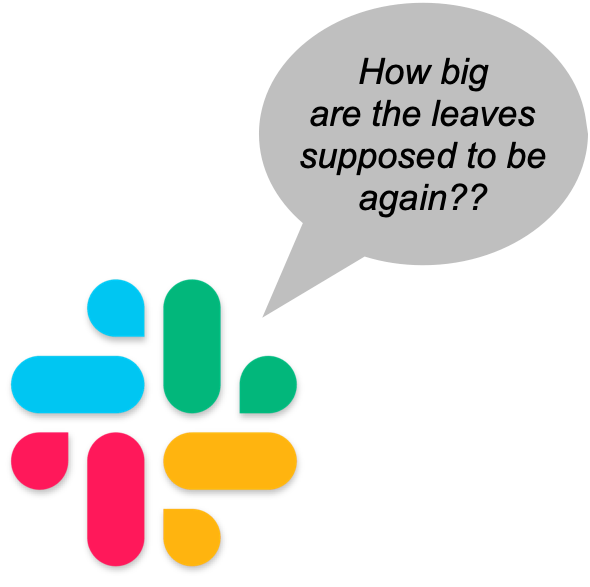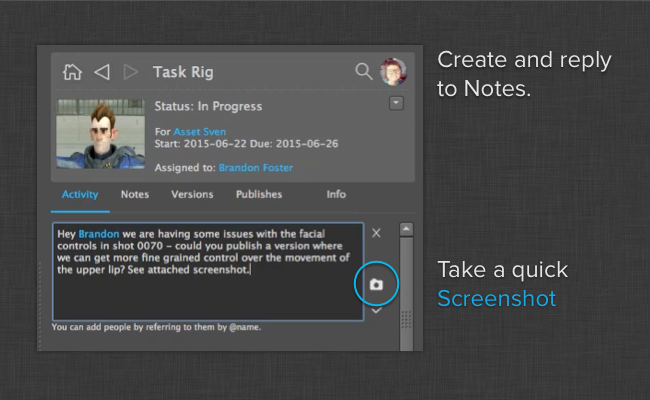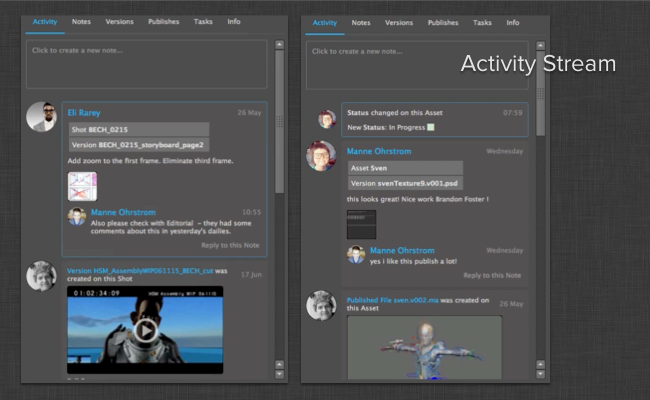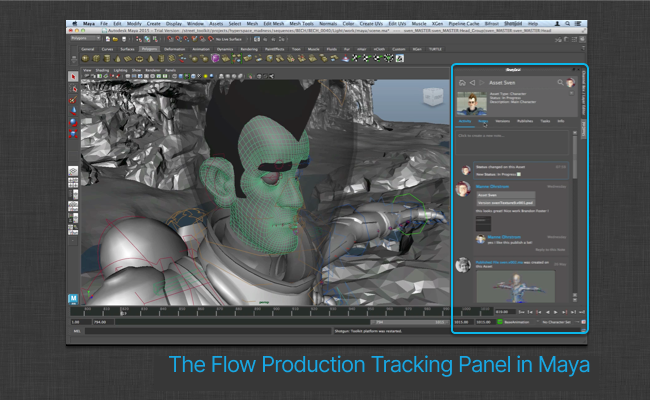Facilitating the Facilitators - The Case for Production Workflow Managers
Production Workflow Manager: A liaison who designs, manages, and optimizes production workflows and tool configurations, allowing for fluid collaboration between creative, production, and technical teams.
Introduction
"The envoy to pipeline from production."
Most of us accept that the primary role of a VFX vendor-side production team is to facilitate the activities of artists working on a project. The tangible goal-posts then, can be summed up as: keeping an artist's main focus on what's happening between their read and write nodes — not tracking creative look approvals, change orders, linking assets, scheduling, relaying notes, and so on...
A good producer needs to have a set of tools at their disposal to enlist, support, and deliver the work of these artists. These tools should also help make sure producers and coordinators can utilize all available data tracked in whatever production resources available. Enter the Production Workflow Manager. Some put this under Production Manager, others Production Pipeline Lead, at some shops coordinators do this, or TDs, but this person's role is to facilitate the facilitators — and it's my opinion that this should be a dedicated role as the envoy to pipeline from production. Essentially someone who works to build, teach, and support workflows that bolster the work of production professionals.
Example Responsibilities
"Beyond making pages in ShotGrid."
ILM for example, lists this role as having the following basic topline hats to wear:
- Work with Productions on overall best practices on production workflows and internal production tool configurations (e.g best ways to setup ShotGrid, Cantina, other software)
- Help develop internal training sessions, manage and maintain documentation for these workflows for users.
- Manage and partner closely with Tech PMs to scope and implement changes to production workflows.
Essentially: plan, document and implement the production tools used at the facility. I said earlier: build, teach, and support, but this also covers it. You can see how the role goes beyond making pages in ShotGrid.
Why Is This Role Important?
"Tooling without ownership leads to entropy."
There are a number of reasons this is important but I'll give you my opinion from experience in a similar role at Baked Studios the last couple years. It's important because it creates a set process that can be improved over time. What I mean by that, is by setting up your production workflow, and putting someone in charge of it, you centralize and make trackable, your efforts toward a more efficient system. Copying and pasting data from ShotGrid? Well a year from now let's say you reach out to SG to build a downloadable .csv function (which it has now). Stuck downloading .csv files to send to client all the time? Well, another year from now, you work with Google and their gspread library to develop a lightweight tool that syncs data directly to Google Sheets. Each iteration, you're improving the best practices of your teams. It's creating a space for innovations to build toward something, and to evolve.
But why doesn't this fall under pipeline work? Why does there need to be a production person on this? Well that's really what I'd like my main point to be here: Tooling without ownership leads to entropy. So, recognizing production's role as a central authority on projects, with information that needs to be both distributed and collected — it makes sense that the workflows for production be managed and thought about by someone who knows the process inside and out, and who has the involvement necessary with relevant stakeholders, to ask the right questions for how to make it better.
What does better look like? Here's a quick example:
A healthy production workflow turns this:

Into this:



Good communication hygiene starts with good channels. These kinds of efficiencies aren't just for quality of life, they make the process easier to track, audit and repeat — for everyone's sake!
Tools Involved In This Role And Skills To Have
"Being able to communicate and show things without getting in the way is huge."
Really depends on if you're at a small facility or a big one. Small one might mean you're dipping your toes more fully into pipeline, in which case knowing things like Python, Git, and Autodesk's ShotGrid Toolkit would be necessary. Autodesk's ShotGrid Toolkit is for customizing and building on top of ShotGrid's integrations for DCCs — there are other production tracking tools and ways to integrate them: see ftrack, AYON, Kitsu, and, Prism, but SG is the most widely used commercially available one to my knowledge. Python is the language most commonly used in DCC APIs for you to tap into so you can create deeper integrations. Finally, Git is the classic and universally adopted source control option for making sure you're versioning properly when writing any code.
A role like this at a big facility, however, might entail more soft skills — interviewing artists, producers, etc... about their experiences using the tools, then liaising with dedicated developers to implement any changes. It may even involve working with full turnkey platforms like Arch Platform Technologies or Redesign's Artist Anywhere.
In both cases, a strong working knowledge of tools available for documentation and explanation are crucial, such as Markdown and Freeform respectively. Production people tend not to be technical (by design), so being able to communicate and show things without getting in the way is huge.
Also a deep understanding of whatever production tracking system you have setup in addition to a good knowledge of various DCCs and the overall vfx process is important too. More so just to know what options there are, and what challenges tend to come up, and how those may have been solved by a feature or built-in tool already.
In all cases, the Production Workflow Manager makes sense to me as a translator role, like many vendor-side production roles, it's there to liaise and to mediate between parties. In this case those parties are production and pipeline, and without a role like this there is no proper representation for either party at either party.
Closing Thoughts
As clients are looking to do more and more for less and less, vendors need roles like this to keep teams efficient and focused on getting things right when it comes to the actual work. Production Workflow Managers help producers and coordinators make sure at the very least, the right pixels are being f**ked, with the most accurate information, supported by efficient workflows and methods. At the very most, this role can be a game changer for the way things are done at any facility.